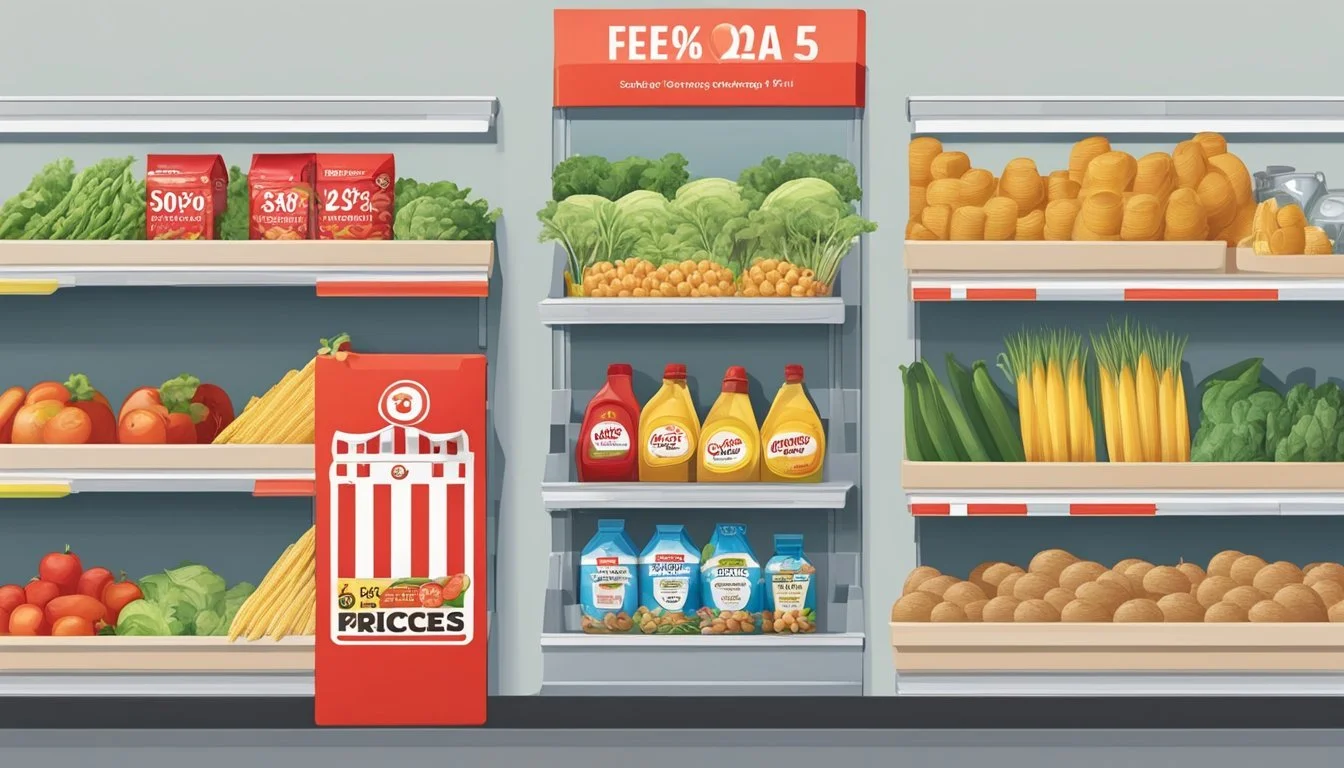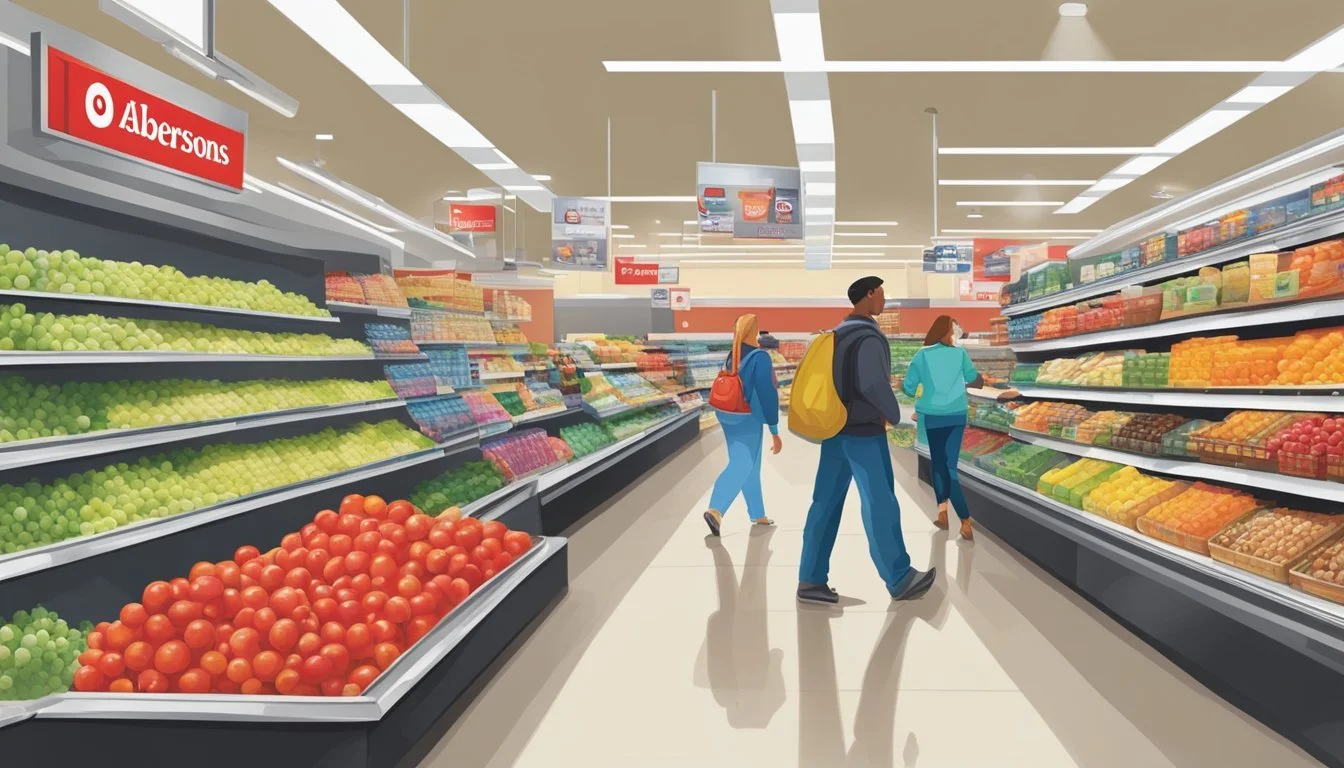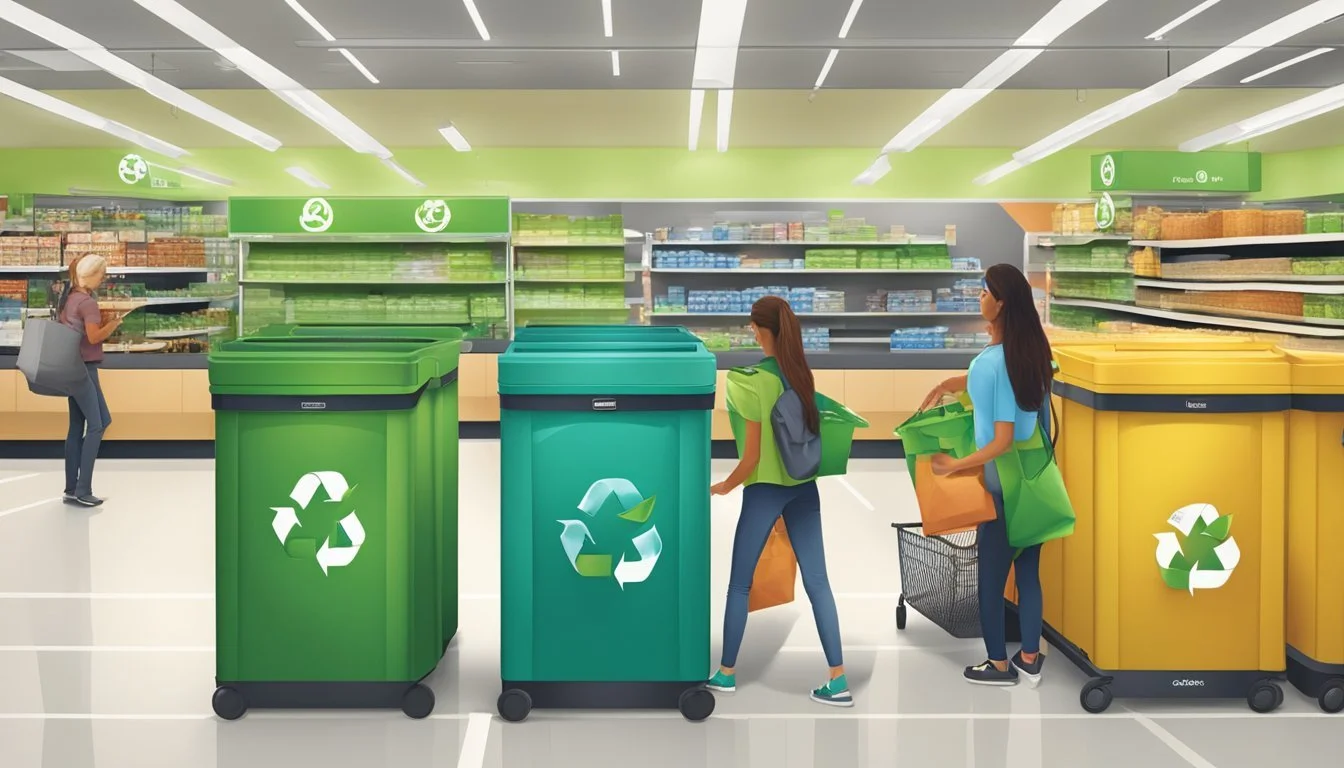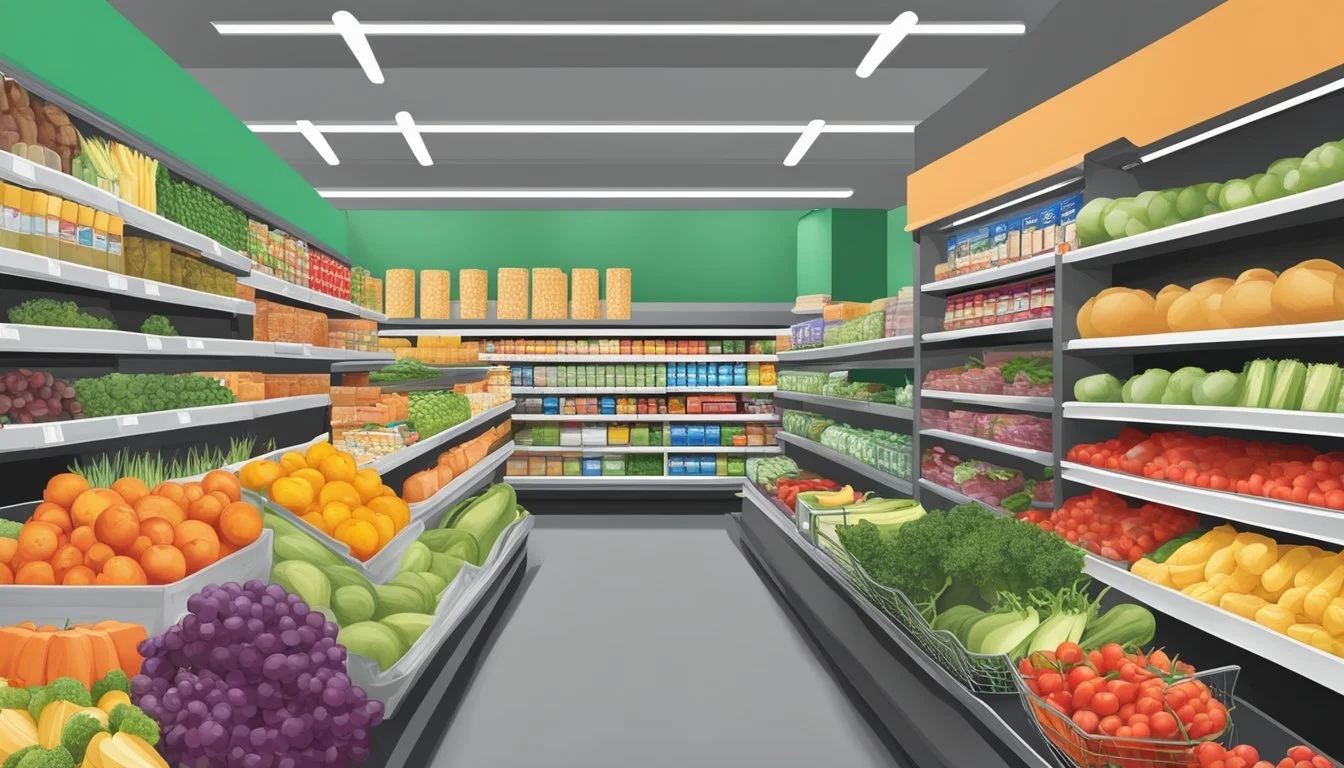Target vs Albertsons
Comparing Price, Quality, and Selection
When it comes to grocery shopping, choosing the right store can make a big difference in your budget and overall experience. Target and Albertsons are two popular grocery chains in the U.S. that offer different advantages for shoppers.
A comparison of prices between Target and Albertsons shows that Target generally offers lower prices on frozen items, while Albertsons may provide better value in terms of quantity for certain products. This price difference can impact the total cost of a shopping trip, with savings varying depending on the specific items purchased.
Beyond pricing, the shopping experience at these two stores differs significantly. Target is known for its clean, organized layout and trendy home goods section, which may appeal to shoppers looking for more than just groceries. Albertsons, on the other hand, typically offers a wider variety of food items and may be preferred by those seeking a traditional supermarket experience.
Company Overviews
Target and Albertsons are major players in the U.S. retail and grocery landscape. Both companies have unique histories, business models, and market positions that shape their offerings to consumers.
Target Corporation Profile
Target Corporation is a prominent American retail chain founded in 1902. Headquartered in Minneapolis, Minnesota, Target operates over 1,800 stores across the United States.
The company is known for its "Expect More. Pay Less." slogan, offering a wide range of products including groceries, clothing, electronics, and home goods. Target has built a loyal following by focusing on trendy, affordable merchandise and a pleasant shopping experience.
In recent years, Target has expanded its grocery offerings, competing more directly with traditional supermarkets. The retailer has also invested heavily in e-commerce and same-day delivery services to compete with Amazon and Walmart.
Albertsons Companies Inc. Profile
Albertsons Companies Inc. is one of the largest food and drug retailers in the United States. Founded in 1939 in Boise, Idaho, Albertsons now operates over 2,200 stores across 34 states and Washington D.C.
The company owns multiple grocery banners, including Safeway, Vons, Jewel-Osco, and Shaw's. Albertsons focuses primarily on traditional grocery offerings, with most locations featuring bakeries, delis, and pharmacies.
Albertsons has faced challenges from discounters like Walmart and online competitors such as Amazon-owned Whole Foods. In response, the company has invested in digital initiatives and expanded its private-label offerings to attract cost-conscious shoppers.
Price and Savings Comparison
Target and Albertsons offer different pricing strategies and savings opportunities. Their prices vary across product categories, with each store providing unique discounts and loyalty programs to attract customers.
Price Differences Across Common Items
Target generally offers lower prices on many common grocery items compared to Albertsons. A recent analysis found that Target's frozen food prices were about 11% cheaper than Albertsons. For example, Target sold frozen hashbrowns and broccoli for $4.98, while Albertsons charged $5.58 for similar products.
However, Albertsons often provides better value in terms of quantity. In the frozen food example, customers got 12 oz more hashbrowns and 4 oz more broccoli at Albertsons for just $0.60 extra.
Price differences can be significant in certain categories, with some studies showing variations of up to 41% between different grocery chains.
Discounts and Deals
Both Target and Albertsons offer weekly sales and promotional discounts. Target frequently provides manufacturer coupons and store-specific deals through its Target Circle program. These can be accessed via their mobile app or website.
Albertsons runs regular sales events and offers digital coupons through their Just for U program. They also have a "Buy One, Get One Free" promotion on select items each week.
Seasonal sales are common at both stores, with deeper discounts on holiday-related items and pantry staples during specific times of the year.
Loyalty Programs and Savings
Target's loyalty program, Target Circle, is free to join and offers 1% earnings on every purchase, which can be redeemed on future shopping trips. Members also get access to exclusive deals and personalized offers based on shopping history.
Albertsons' Just for U program provides personalized deals, digital coupons, and gas rewards. Members can earn points on purchases, which can be redeemed for discounts on groceries or fuel at participating gas stations.
Both programs allow customers to stack rewards with manufacturer coupons and store sales, maximizing potential savings. The effectiveness of each loyalty program depends on individual shopping habits and frequency of visits to the respective stores.
Product Range and Quality
Target and Albertsons offer diverse product selections with varying quality across departments. Both stores aim to meet customer needs, but differences emerge in specific categories.
Fresh Produce and Quality
Target emphasizes convenience with pre-packaged fruits and vegetables. Their produce section is smaller than Albertsons but offers popular staples. Quality can be inconsistent, with some items showing signs of early ripening.
Albertsons boasts a larger produce department with a wider variety of seasonal fruits and vegetables. They often source from local farms, resulting in fresher options. Organic produce is more readily available at Albertsons compared to Target.
Both stores provide bagged salads and pre-cut fruit, catering to busy shoppers. Albertsons edges out Target in overall produce freshness and selection.
Meat and Seafood Selection
Target's meat department focuses on packaged options and basic cuts. Their seafood selection is limited, primarily offering frozen items. The quality is generally acceptable for everyday cooking needs.
Albertsons excels in this category with full-service meat and seafood counters. Customers can find a broader range of cuts and varieties. Fresh fish and specialty meats are more common at Albertsons. They also offer marinated options and ready-to-cook items.
For those seeking specific cuts or fresh seafood, Albertsons is the clear winner. Target's selection suits shoppers looking for quick, pre-packaged proteins.
Organic and Specialty Products
Target has expanded its organic offerings in recent years. Their Good & Gather line includes many organic options. The store carries popular specialty brands but has a more limited selection compared to Albertsons.
Albertsons provides a dedicated organic section with a wider range of products. They stock numerous specialty items, including international foods and dietary-specific options like gluten-free and vegan products.
Both stores offer organic dairy and eggs. Albertsons typically has a larger variety of organic produce and specialty cheeses.
Private Labels and Major Brands
Target's private label, Good & Gather, covers a wide range of groceries. It offers quality products at competitive prices. Target also stocks major national brands across all categories.
Albertsons features multiple private labels, including O Organics and Signature Select. These brands span various price points and quality levels. Albertsons carries more niche and local brands alongside major national ones.
Both stores balance private labels with well-known brands. Target's private label focuses on value, while Albertsons offers more variety in their store brands.
In-Store Shopping Experience
Target and Albertsons offer distinct in-store environments that shape the grocery shopping journey. Their approaches to layout, customer service, and checkout processes significantly impact the overall experience for shoppers.
Store Layout and Design
Target's stores feature a clean, modern aesthetic with wide aisles and clearly marked sections. The grocery area is typically located at one end of the store, integrated with other departments. Bright lighting and eye-catching displays create an inviting atmosphere.
Albertsons opts for a more traditional grocery store layout. Produce sections greet customers near the entrance, followed by bakery and deli areas. The aisles are arranged logically, making it easy to find specific items. Some Albertsons locations have undergone renovations to modernize their look and feel.
Both stores use color-coded signage to help navigate departments. Target's red accents contrast with Albertsons' use of green and earth tones throughout their stores.
Customer Service and Assistance
Target emphasizes a self-service model but maintains staff presence on the floor. Employees wear distinctive red shirts and are trained to assist customers when approached. The store uses technology to enhance service, with price check scanners and digital kiosks available.
Albertsons focuses on personalized service, especially in specialty departments. Butchers, bakers, and deli staff offer advice and custom orders. Floor staff are generally more proactive in approaching customers to offer assistance.
Both chains provide customer service desks for returns, exchanges, and general inquiries. Target's guest services are often located near the store entrance, while Albertsons typically positions them closer to the checkout area.
Checkout Efficiency
Target implements a mix of traditional lanes and self-checkout options. Their "Skip-the-Line" mobile checkout allows team members to ring up customers anywhere in the store during busy periods. Express lanes cater to shoppers with fewer items.
Albertsons offers standard checkout lanes with cashiers and baggers. Self-checkout kiosks are available in many locations, though not as prevalent as in Target. Some Albertsons stores feature express lanes for quick transactions.
Both retailers have embraced digital payment methods and store loyalty programs to speed up the checkout process. Target's REDcard and Albertsons' Just for U program offer discounts and streamlined payment options for frequent shoppers.
Additional Services and Features
Target and Albertsons offer various services beyond basic grocery shopping. These include online platforms for convenient ordering and delivery options, as well as in-store amenities to enhance the customer experience.
Online Shopping and Delivery
Target provides a user-friendly app and website for online shopping. Customers can browse products, create lists, and place orders for delivery or pickup. Same-day delivery is available in many areas through Shipt. Target's Drive Up service allows shoppers to order items and have them brought to their car.
Albertsons also offers online shopping through its website and mobile app. The company provides home delivery and Drive Up & Go services at many locations. Customers can schedule deliveries or pick up their orders at designated times.
Both retailers have expanded their digital capabilities to meet increasing demand for online grocery services.
In-Store Additional Services
Target stores often include in-store Starbucks cafes, allowing shoppers to enjoy coffee while browsing. Many locations feature CVS pharmacies for prescription needs. Target also offers optical services at select stores.
Albertsons provides pharmacy services in most locations. Many stores have in-store banks, offering convenient financial services. Some Albertsons locations include Starbucks kiosks or other coffee shops.
Both retailers typically have customer service desks for returns, exchanges, and other inquiries. Many stores offer coin-counting machines and Western Union services for money transfers.
Nutrition and Health Focus
Target and Albertsons have both made strides in prioritizing nutrition and health for their customers. These retailers offer various options for dietary needs and provide tools to access nutritional information.
Dietary Specific Offerings
Target has expanded its Good & Gather brand to include more organic and health-focused products. The retailer stocks a wide range of gluten-free, vegan, and keto-friendly items across multiple aisles.
Albertsons has developed its O Organics line, featuring over 1,000 USDA-certified organic products. The chain also offers a robust selection of plant-based alternatives and foods catering to specific dietary restrictions.
Both stores provide dedicated sections for specialty diets, making it easier for customers to find suitable options.
Nutritional Information Accessibility
Target displays clear nutritional labels on its private-label products. The company's website and mobile app allow customers to view detailed nutritional information for many items before purchasing.
Albertsons has taken a significant step with its Sincerely Health app. This platform provides evidence-based nutrition recommendations and helps customers make informed decisions about their food choices.
The app offers personalized insights based on individual health goals and dietary preferences. Albertsons aims to provide 50 million nutrition recommendations to digital customers by 2024.
Both retailers have implemented shelf-labeling systems to highlight healthier choices, making it easier for shoppers to identify nutritious options quickly.
Community and Sustainability Efforts
Target and Albertsons both prioritize giving back to local communities and implementing eco-friendly practices. Their initiatives aim to create positive social impact while reducing environmental footprints.
Local Community Engagement
Target focuses on education, with over $1 billion donated to K-12 schools since 2015. The company provides grants for field trips and classroom technology. Target also supports disaster relief efforts, donating supplies and funds to affected areas.
Albertsons runs a hunger relief program, donating millions of meals annually to food banks. The company partners with local nonprofits to address community needs. Albertsons employees volunteer thousands of hours each year for various causes.
Both retailers offer community grants and sponsor local events. Target's "Bullseye's Playground" provides free family activities in stores. Albertsons hosts in-store health screenings and nutrition classes.
Sustainability Initiatives
Target aims to reduce carbon emissions by 30% by 2030. The company is installing solar panels on store rooftops and uses energy-efficient lighting. Target has committed to sourcing 100% sustainable cotton by 2022 for its owned brands.
Albertsons focuses on reducing food waste. The company donates unsold food to local charities and composts inedible items. Albertsons has pledged to decrease plastic usage in its operations and product packaging.
Both retailers offer reusable bags and encourage customers to recycle. Target has electric vehicle charging stations at select locations. Albertsons promotes sustainable seafood and locally-sourced produce.
Conclusion
Target and Albertsons each offer unique advantages for grocery shoppers. Target tends to excel in household essentials and packaged goods, often featuring competitive prices on these items.
Albertsons typically provides a wider selection of fresh produce and meats. Their larger store formats allow for more variety in perishables and specialty foods.
Price comparisons between the two chains can vary by location and specific products. Neither store consistently beats the other on overall basket price across all categories.
For budget-conscious shoppers, alternatives like Grocery Outlet may offer even lower prices on select items. Market Basket is another regional chain known for competitive pricing in some areas.
The best choice ultimately depends on individual priorities. Those seeking one-stop shopping for groceries and general merchandise may prefer Target. Shoppers focused on fresh ingredients and gourmet options might favor Albertsons.
Both retailers aim to provide value through loyalty programs and digital coupons. Comparing weekly ads and utilizing store apps can help maximize savings at either chain.








